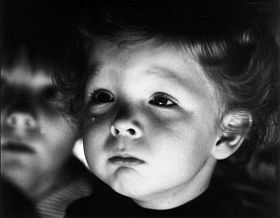


Moscow Exhibition of Film and Art

As part of the upcoming MIFF (Moscow International Film Festival) that runs from June 21 – 30 and again this year includes a competiton programme of documentaries as well as Panorama documentary section, you can go to Moscow to attend a Media Forum that looks quite interesting and intriguing.
The curator and founder of the programme, Olga Shishko, explains: “The Media Forum is a programme at the Moscow Film Festival which has been created especially to expand the familiar borders of cinema and to show that it can vary not only both in content and artistic construction of the text, but also from the formal point of view, the technology of its making and the viewing situation. The language that Media Forum uses to talk to its audience belongs to both cinematic and artistic principles, enriching them both equally…”
At the Ekaterina Cultural Foundation (June 22 – August 19) this is what is going on, a text taken from the site of the Forum:
Exhibition “The Immersions. Towards the Tactile Cinema” consists of several sections each belonging to a certain type of director’s approach to working with screen and viewer. The first section, Pure Cinema, is a reaction to art for art’ sake. Here screen is used as a canvas, actually presenting cinema as an apotheosis of painting. Works by Kazimir Malevich, Mikhail Matyushin, Nam June Paik, Ken Jacobs, Paul Clipson, Hans Richter, Konstantin Adzher, Oleg and Olda Ponomarev are presented.
Attractions’ Montage, the second section, is based on the “4D cinema” concept invented initially by Sergei Eisenstein and presents his followers: Pia Tikka, Herz Frank (photo from “10 Minutes Older, 1968, camera Juris Podnieks), Alexei Isaev and Elena Gorbacheva.
The third section, Tactile Cinema, is about films that can be “watched with hands”, starting with Salvador Dali’s ideas. While working with Luis Bunuel, Dali had quite another vision of the Chien Andalou realization. This is followed by Peter Weibel’s and VALIE EXPORT’s “gripping watching” (beside which works by the TOT-ART group, Valery Ayzenberg, Ekaterina Pavlova and Constantin Semin are presented).
The forth section explores the Machine vision idea by Woody and Steina Vasulkas — a device that can replace both the film director and the viewer, supplanting individual and inaccurate human vision by an objective gaze of the camera itself. Here Ken Jacobs, Dina Karaman and Alexandra Kuznetsova are also presented.
The Interactive Cinema that unfolds with viewers’ participation is the fifth section comprised of works by Zbigniew Rybczyński, Chris Hales, Boris Debackere, Perry Bard, Mark Amerika and Olga Kisseleva.